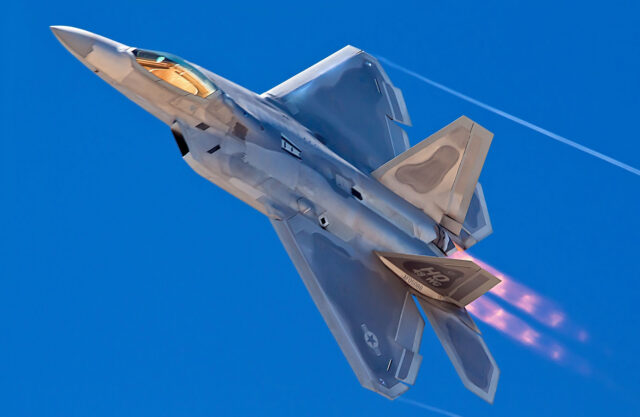Fake crashes and AI video: France’s Rafale fighter jets alleged to be victims of Chinese smear campaign
French intelligence alleges that China has mounted a coordinated disinformation campaign aimed at undermining the reputation of the French Rafale fighter jet.
Findings from a French intelligence service seen by

July 7, 2025

French intelligence alleges that China has mounted a coordinated disinformation campaign aimed at undermining the reputation of the French Rafale fighter jet.
Findings from a French intelligence service seen by The Associated Press say defence attaches in China’s foreign embassies led a charge to undermine Rafale sales, seeking to persuade countries that have already ordered the French-made fighter.
Among the targets, according to French intelligence, is Indonesia, which ordered 42 Rafale jets in 2022. The country also signed a defence pact with France in May 2025, potentially paving the way for further orders.

The attack on the Rafale comes in the wake of India–Pakistan clashes in May, which included dozens of fighter jets from both sides. Military officials have been digging for details of how Pakistan’s Chinese-made military hardware fared against India’s weaponry, notably French-made Rafale fighters.
How China tried to undermine the Rafale fighter jet
French intelligence says defence attachés from Chinese embassies lobbied foreign military officials to cancel or reconsider Rafale orders, promoting Chinese-made alternatives instead. They reportedly argued that India’s Rafales performed poorly in recent clashes with Pakistan, while pushing Beijing’s own hardware as superior.
Following this, a flood of online content emerged, including manipulated images, AI-generated videos, fake crash scenes, and gaming-style visuals suggesting Rafale vulnerabilities.
3/n This image was widely circulated as the "tail" of a downed Rafale. A solid effort by some editors, but it showed clear signs of manipulation and bad Photoshop work. pic.twitter.com/ZpCNhJKNqU
— Beats in Brief (@beatsinbrief) May 21, 2025
French intelligence says more than a thousand newly created social media accounts amplified the messages, promoting Chinese technology superiority.
While French authorities are confident the campaign was state-influenced, they acknowledge there is no direct evidence yet tying the social media content to official Chinese government channels.
Asked by AP to comment on the alleged effort to dent the Rafale’s appeal, the Ministry of National Defense in Beijing said: “The relevant claims are pure groundless rumors and slander. China has consistently maintained a prudent and responsible approach to military exports, playing a constructive role in regional and global peace and stability.”
France alleges a strategic attack on the Rafale
French officials see this as not just an attack on its homegrown fighter jet, but a broader attack on its industrial credibility and geopolitical stance, particularly in the Indo‑Pacific.

“The Rafale was not randomly targeted. It is a highly capable fighter jet, exported abroad and deployed in a high-visibility theater,” the Defense Ministry wrote on its website.
“The Rafale was also targeted because it represents a strategic French offering. By attacking the aircraft, certain actors sought to undermine the credibility of France and its defense industrial and technological base. The disinformation campaign therefore did not merely target an aircraft, but more broadly a national image of strategic autonomy, industrial reliability, and solid partnerships.”
Dassault has sold 533 Rafale fighter jets so far, including 323 for export. Customers include Egypt, Qatar, Greece, the UAE, India, Croatia and Indonesia.
















